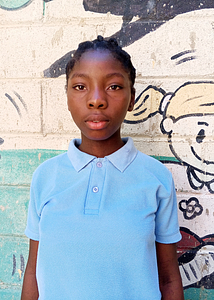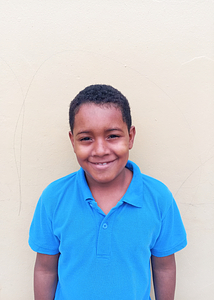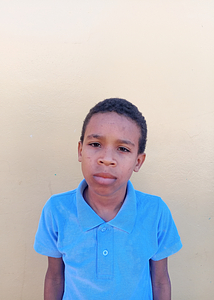Dominican Republic

The Dominican Republic shares the island of Hispaniola with Haiti and is the second-largest nation in the Caribbean. It continues to be a popular tourist destination for its beautiful white-sand beaches and pristine blue water, picturesque mountains, dazzling waterfalls, and of course, its tropical climate.
However, by extreme contrast, the vast majority of the national population lives in distressed conditions and it is the Haitian-Dominicans who suffer the most.
In the mid-1900s, Haitian migrant workers came to the Dominican Republic to work in the sugarcane fields. Historically, racial tension and prejudice has always been a problem between these two nations and it still is today.
Today, the children and grandchildren of these migrants, despite being born in the Dominican Republic, are not recognized as Dominican citizens. They cannot claim any rights or privileges granted to citizens. They have no access to social services such as education and healthcare. Racial tension and prejudices have exacerbated this desperate situation.
Most of these Haitian-Dominicans still live in the southern and western regions of the country, near the border of Haiti, in bateyes—shantytowns originally built for the migrant sugarcane workers in the 1960s. Most homes in these communities are pieced together with palm-wood boards and corrugated tin roofs.
Why We Serve in the Dominican Republic
-
Families are suffering from lack of basic necessities including running water, sewage, and electricity.
-
Annual hurricane season endangers families and often destroys their homes and what few possessions they own.
-
Healthcare is a real concern. Most families lack access to health care facilities and affordable medical care.
-
There are still many children born to Haitian immigrant descendants who are unable to apply for citizenship. Without citizenship, these children will be unable to attend college and apply for jobs that would earn them a livable wage.
-
Due to poverty and lack of education, a high percentage of teenage girls get married and pregnant at a young age, some as early as eleven years old.
Children of the Nations' Involvement
 In 1997, a woman named Malou Faublas learned about COTN and asked for help. She and one other woman were trying to teach 67 children in a leaky, broken-down schoolhouse in the batey of Algodon. They were struggling to meet even the most basic needs of the children.
In 1997, a woman named Malou Faublas learned about COTN and asked for help. She and one other woman were trying to teach 67 children in a leaky, broken-down schoolhouse in the batey of Algodon. They were struggling to meet even the most basic needs of the children.
Working closely with Malou and other local leaders, COTN set up a Village Partnership Program in Algodon, focusing on providing food and education.
Since then, COTN's ministry in the Dominican Republic has greatly expanded and today serves more than 1,000 children, providing food, education, medical care, clean water solutions, Christian discipleship, a University/Vocational Program for older students, and the I Love Baseball program for teenage boys. All of this is only possible through your generous support.
Village Partnerships:
- Algodon, an impoverished community of Haitian-Dominicans (known as a batey), located along the highway just outside the city of Barahona, where COTN's ministry center is headquartered. (est. 1997)
- Altagracia, a batey located just outside of Barahona. (est. 2006)
- Don Bosco, a Dominican community without access to basic necessities, located in Barahona. (est. 2002)
- Los Robles, a batey located just outside of Barahona. (est. 1999)
- Pueblo Nuevo, a Dominican community lacking basic necessities, located on a hilltop in Barahona. (est. 2007)
- I Love Baseball, a program designed to provide education, nutrition, spiritual development, and baseball training to young men in Barahona. (est. 2008)
Barahona Ministry Center:
Administrative offices
Medical/Dental/Surgery Center
Casa Betesda guest housing for Venture participants and event space local visitors
Recent Updates

Dominican Republic - Algodon Classrooms
Provide children in the Dominican Republic with classrooms.

Dominican Republic - Clinic Equipment
Help provide a medical microscope for our surgical care teams
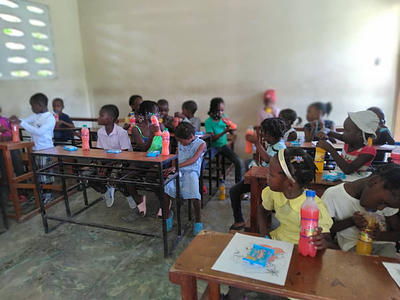
Dominican Republic - Pedernales
Help provide education, healthcare, and hope to 100 Haitian-Dominican children.

Dominican Republic - I Love Baseball
Help Dominican youth become responsible, godly leaders at home and in their community

Feeding Children Today, Tomorrow, Forever
Provide food and sustainable farming solutions to feed children in Africa and the Caribbean

Int'l Development - Education Fund
Help educate children and equip them to transform their nations

Int'l Development - Physical Care Fund
Provide for the health and medical needs of children in Africa and the Caribbean

Int'l Development - Social and Emotional Care Fund
Help raise emotionally healthy children

Int'l Development - Spiritual Care Fund
Help fund spiritual care projects and bring Jesus' love to children in need

Int'l Development - Sustainability Initiatives
Our WARM (Water, Agriculture, Renewable Energy, and Microenterprise) practices focus on an integrated approach to sustainability.

University Scholarship Fund
Help University/Vocational students to attend programs for professional development.
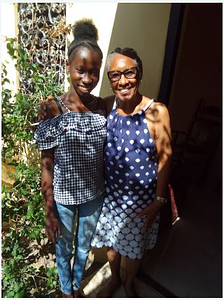
Partner with COTN through Malou Faublas
AUGUST 2025 Dear Friends and Prayer Partners, GREETINGS from Barahona! Yes, I came back to Barahona...
FUNDED!

Provide School SmilePacks to equip our children Back to School
We need to ship 7,500 School SmilePacks to equip our students for the school year. And we can't do it without yo...
Goal
Raised





